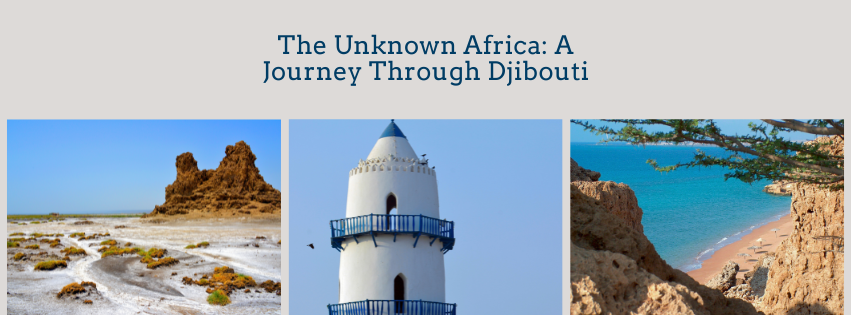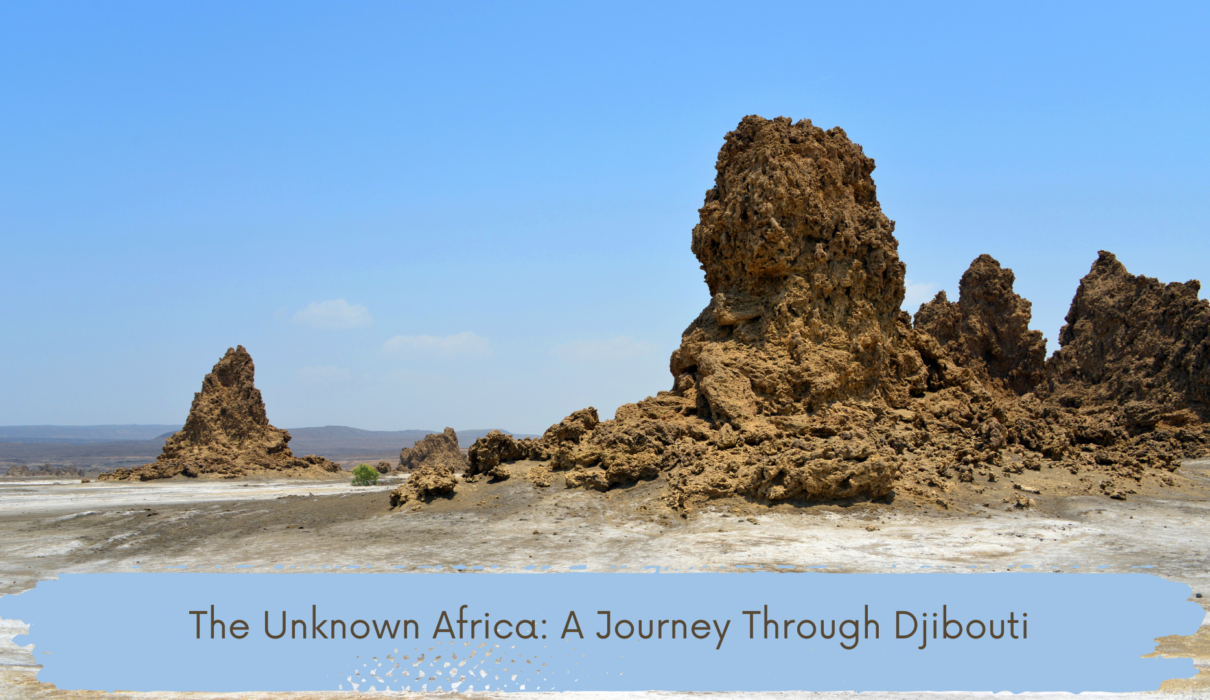Djibouti, a small country in the Horn of Africa, offers a rich cultural heritage and breathtaking natural landscapes. Located on the shores of the Red Sea, the country’s strategic importance, unique geology and unique culture make it a true destination for travellers. The stunning scenery of desert landscapes, salt lakes and beaches offer experiences that cannot be found elsewhere.

History at a glance
Djibouti’s history is closely linked to trade between the Indian Ocean, the Red Sea and the Middle East. For centuries, the country’s territory was an important trade route where African, Arab and European cultures met. At the end of the 19th century, Djibouti became part of the French colonial empire and remained under French rule until 1977, when it gained independence. Today, the country retains its multicultural character, where Somali, Afar and French influences are mixed.
Sights not to be missed
Lac Assal: This dramatic crater lake, ringed by dark, dormant volcanoes, is the lowest point in Africa – 155 metres below sea level – and the second saltiest body of water in the world. A dazzling sight, the aquamarine waters are ringed by a vast salt field 60 metres deep, which stands out sharply against the black lava fields behind. Here you can see Afar herders or local people collecting salt.

Port of Djibouti City: The capital, Djibouti City, serves as the gateway to the Red Sea, where the modern port is both a busy commercial centre and a historical site. The city’s traditional markets and colonial-style buildings offer a fascinating insight into local life.
Day Forest National Park: This is the only forested area in the country, providing a wonderful refuge from the hot desert climate. The park is home to many endemic species of flora and fauna and is an ideal trekking destination.
Ghoubbet Bay: One of the most beautiful stretches of the Red Sea, with rich coral reefs and marine life underwater. It is a magical place for diving enthusiasts.
Ardoukoba volcano: This relatively young volcano erupted in 1978 and can still be visited today. The volcanic fields and lava flows in the area around the volcano provide an extraordinary geological attraction.
Interesting facts
- Djibouti is one of the smallest countries on the African continent, yet it is extremely rich in natural wonders and cultural diversity.
- The majority of the population lead a nomadic lifestyle and traditionally make their living from livestock farming.
- The country’s unique geographical location places it at the crossroads of one of the busiest sea routes in the world.
Special food and drink
- Fah-fah: A broth made mainly from goat meat and flavoured with various spices such as cinnamon and cardamom. The soup is a staple of local nomadic cuisine.
- Sambusa: These spicy, meaty bags are also very popular in Djibouti, especially during Ramadan. Similar to Indian samosas, but with a special local spice.
- Lahooh: This is a sour, pancake-like bread, often eaten with coffee or meat dishes.
- Buna: Coffee has a special role in Djibouti. Buna’ is the local coffee, traditionally spiced with cinnamon and cloves and enjoyed sipped slowly during friendly conversations.
In Djibouti, as in many other countries, using a VPN (virtual private network) can be useful, especially if you want to browse the internet safely or access content that may be restricted. Although it is generally legal to use VPNs, it is worth checking the regulations for your country, as access may be restricted in some places.
Buying a SIM card in Djibouti:
- Getting a local SIM card in Djibouti is fairly easy, and is recommended if you want cheap access to the internet or phone calls on a local mobile network. Djibouti Telecom is the only official mobile and internet provider in the country.
- You can often buy a local SIM card by showing your passport. These cards are sold in local shops, airports or official service provider shops.
- It is also important to check data packages, as mobile internet is not always cheap in Djibouti.
The combination of a VPN and a local SIM card will allow you to browse and use various online services while travelling in Djibouti with a secure and reliable internet connection.
Visa requirements: you will definitely need a visa to enter the country, you can buy a tourist visa which you can apply for online EVISA
Vaccine requirements: to enter the country you must have a certificate of vaccination against yellow fever if you are coming from a country that is considered at risk of infection . Vaccine requirements
For detailed information on medical entry requirements and recommended vaccinations, visit TravelHealthPro Djibouti
Credit and debit cards are not widely accepted. ATM machines may not accept Mastercard cards, so it is advisable to bring cash with you, Djibouti Franc (DJF) is the official means of payment.

Please note that photography of ports, public buildings, military installations and bridges is FORBIDDEN. Equipment may be confiscated.
For more interesting information, please read our blog 10 best places to visit in Djibouti
Djibouti is interesting not only for its history and culture, but also for its stunning natural beauty. From the Red Sea coastline to the salt lakes and volcanoes, the country offers a wealth of unique attractions. For travellers looking for a unique experience, exploring Djibouti can be a true adventure, enhanced by the flavours of local gastronomy and a welcoming culture.


